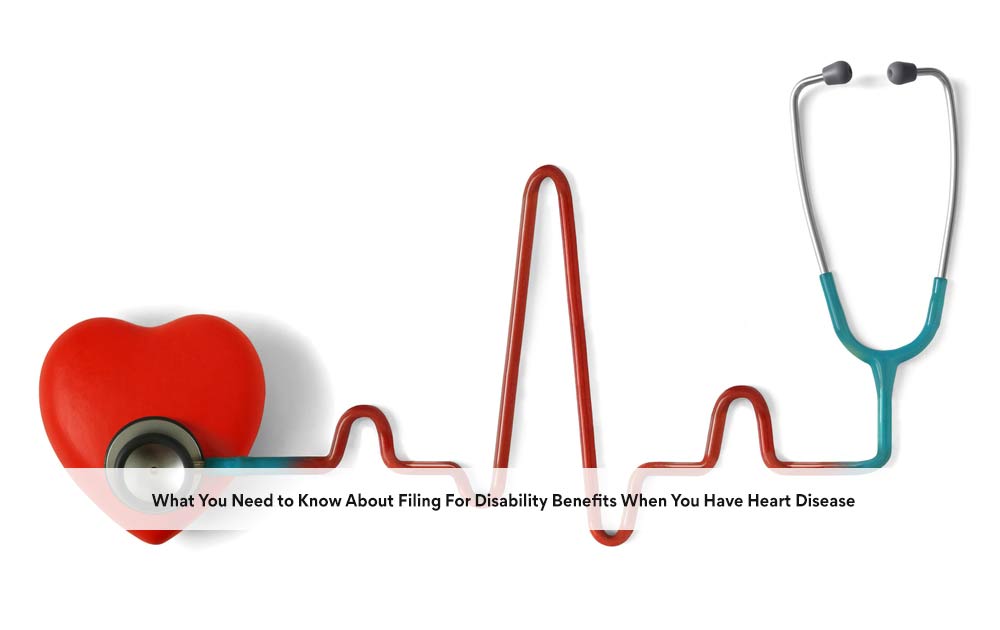When a family member dies, the last thing anyone wants to think about is paperwork and government benefits. But Social Security survivor benefits can help replace lost income and provide needed financial stability for qualifying family members.
The Clauson Law Firm is devoted to helping families understand their rights to Social Security benefits, including the complex rules surrounding survivor benefits. Our extensive experience with thousands of Social Security cases nationwide has shown us that many families miss out on benefits they deserve simply because they don't understand who qualifies or how to apply. Understanding these benefits now, before you need them, can make a significant difference in securing your family’s financial stability when a income provider dies.
What Types of Social Security Death Benefits Exist?
Social Security provides two distinct types of death benefits to qualifying survivors. The first is a relatively small one-time lump sum death payment. The second is more substantial, ongoing monthly survivor benefits that can continue for years or even decades.
The death benefit is a lump sum payment of $255 that Social Security pays to help cover immediate expenses after someone dies. While this amount hasn't changed since 1954, it can help with small funeral costs or other immediate needs. An increase in the lump sum death benefit was proposed in the US Senate in September 2024, but was never voted on. The one-time death benefit is available to surviving spouses who lived with the deceased at the time of death, or to surviving spouses who were already receiving Social Security benefits based on the deceased person's work record.
Monthly survivor benefits represent the much more substantial financial support Social Security provides to qualifying family members. The ongoing payments are based on the deceased person's earnings record and provide monthly income to help replace the decedent’s lost wages. The amount of the survivor benefit payments varies, depending on the decedent’s work history and the survivor's relationship to them.
Who Can Receive Social Security Survivor Benefits?
Survivor benefits are available to several of the decedent’s family members. You can qualify if you're the spouse, divorced spouse, child, or dependent parent of someone who worked and paid Social Security taxes before they died. However, each category of survivor has specific requirements that must be met to qualify for disability benefits.
- Surviving Spouses: A surviving spouse can receive benefits if they are age 60 or older, or as early as age 50 if they have a qualifying disability. To maintain eligibility, the surviving spouse must not have remarried before age 60 (or before age 50 if disabled). Surviving spouses caring for the deceased person's child under age 16 or a disabled child can receive benefits at any age.
- Divorced Spouses: Divorced spouses also qualify for survivor benefits under certain conditions. The marriage must have lasted at least 10 years, and the divorced spouse cannot have remarried before age 60 (or age 50 if disabled). Even multiple divorced spouses can each receive the full survivor benefit if they meet those criteria
- Children Of The Deceased Worker: Children of the deceased worker qualify to receive survivor benefits until age 18, or age 19 if they're still in high school. Disabled children can continue receiving benefits beyond age 18 as long as their disability began before they reached age 22. Biological and adopted children also qualify, as do stepchildren. So too do dependent grandchildren under certain circumstances.
- Dependent Parents Of The Deceased Worker: Parents who are at least 62 years old and are financially dependent on the deceased worker for at least half of their financial support can also qualify for survivor benefits.
How Much Can Survivors Expect to Receive?
The amount of survivor benefits will be different in each case. The size of someone’s Survivor benefits depend on the deceased person's earnings history, the survivor's age when they start receiving benefits, and their relationship to the deceased.
Surviving spouses can receive up to 100% of the deceased person's benefit amount if they wait until their full retirement age to start receiving survivor benefits. However, if you claim benefits early (starting at age 60), payments begin at 71.5% of your spouse's benefit. The longer you wait to apply, the higher the percentage of the decedent’s full benefit you receive.
The specific percentages are:
- over 75% at age 61
- over 80% at age 63
- over 90% at age 65
This means a surviving spouse who begins receiving benefits at the earliest possible age of 60 will receive about 71.5% of what their deceased spouse was entitled to receive, while waiting until age 63 increases that percentage to over 80%.
To receive 100% of the deceased worker’s benefit amount, the surviving spouse needs to wait until they reach their own full retirement age to file the claim.
Children typically receive 75% of the deceased parent's benefit amount. However, there's a family maximum that limits the total amount all survivors can receive on one person's work record. The maximum ranges from 150% to 180% of the deceased person's benefit amount.
The Clauson Law Firm guides families through these complex calculations and determines the best strategy for maximizing their survivor benefits. Our experience has shown that timing decisions about when to apply will definitely impact the total benefits a family receives over time.
Do You Need to Have Worked to Receive Survivor Benefits?
One of the most important features of Social Security survivor benefits is that the survivors don't need to have worked or paid into Social Security to receive benefits. The benefits are based entirely on the deceased person's earnings record over the course of their life and their Social Security contributions.
This means that surviving spouses who never worked outside the home, children who are too young to have worked, and dependent parents can all receive substantial monthly benefits based on their deceased family member's earnings.
However, the deceased person must have worked long enough and recently enough to qualify for Social Security benefits themselves. Generally, this means earning 40 quarters (10 years) of Social Security coverage, though younger workers may qualify with fewer quarters depending on whether they became disabled early in their career or their age at death.
How do You Apply for Social Security Death Benefits?
Applying for Social Security survivor benefits requires you to present certain documentation. The process can be complex, especially during the emotional stress of losing a loved one. Social Security will not automatically start survivor benefits. Surviving family members must take action to claim benefits they're entitled to receive.
The application process begins with contacting Social Security as soon as possible after the death occurs. You can apply by calling Social Security at 1-800-772-1213 or visiting your local Social Security office. The funeral director often reports the death to Social Security, but this doesn't automatically trigger benefit applications.
However, working with an experienced Social Security benefits lawyer can help you avoid unnecessary delays due to missing documents or filing errors. During an already difficult time, having professional guidance ensures your application is complete and accurate from the start, potentially saving months of back-and-forth communication with Social Security.
Documents you need to complete the application process include:
- deceased person's death certificate
- the deceased person's Social Security number
- your Social Security number
- your birth certificate
- the deceased person's most recent W-2 forms or self-employment tax return
- and your marriage certificate if applying as a surviving spouse
Divorced spouses need additional documentation proving the marriage lasted at least 10 years.
Children's applications require birth certificates or adoption papers proving their relationship to the deceased worker.
Can You Receive Both Survivor Benefits and Your Own Social Security?
The answer to this question requires understanding Social Security's complex rules about receiving multiple benefits.
Social Security generally does not pay both benefits in full. Instead, you receive the higher of the two benefit amounts. But, the timing of when you claim each type of benefit will have a major impact your total lifetime benefits.
Eligibility for more than one benefit creates strategic opportunities for surviving spouses who are entitled to both types of benefits. For example, you might claim survivor benefits early while allowing your own retirement benefits to grow through delayed retirement credits. Or, you might claim your own benefits early and switch to higher survivor benefits later.
These decisions require careful analysis of your individual situation, including your age, financial needs, health status, and the relative amounts of each available benefit. Making the wrong choice can cost thousands of dollars over your lifetime.
The attorneys at The Clauson Law Firm regularly help clients analyze these complex decisions and develop strategies that maximize their total Social Security income. Our many years of daily experience gives us a comprehensive understanding of Social Security rules and benefit calculations. We provide personalized guidance that fits each family's unique circumstances.
What Happens If Your Survivor Benefit Claim Is Denied?
Sometimes Social Security denies survivor benefit claims. Common reasons for denial include insufficient documentation, unresolved questions about the relationship between the survivor and deceased worker, or disputes about whether the deceased worker had enough Social Security coverage.
When Social Security denies a survivor benefit claim you should appeal the decision.
The appeals process has strict deadlines, typically giving you only 60 days from the day you receive the denial notice to file your appeal. Missing the deadlines can result in losing your right to challenge the decision. You need to act quickly when you disagree with Social Security's determination.
Many survivor benefit appeals involve technical legal issues that require detailed understanding of Social Security law and procedures. Getting experienced legal representation will significantly improve your chances of success and help ensure you get the benefits you deserve.
The Clauson Law Firm has successfully represented hundreds of clients in survivor benefit appeals throughout our years of practice. We understand the common reasons Social Security denies these claims and we know how to build strong cases that address the agency's concerns while protecting our clients' rights.
Don't let complex rules or intimidating paperwork prevent your family from receiving Social Security death/survivor benefits you deserve.


